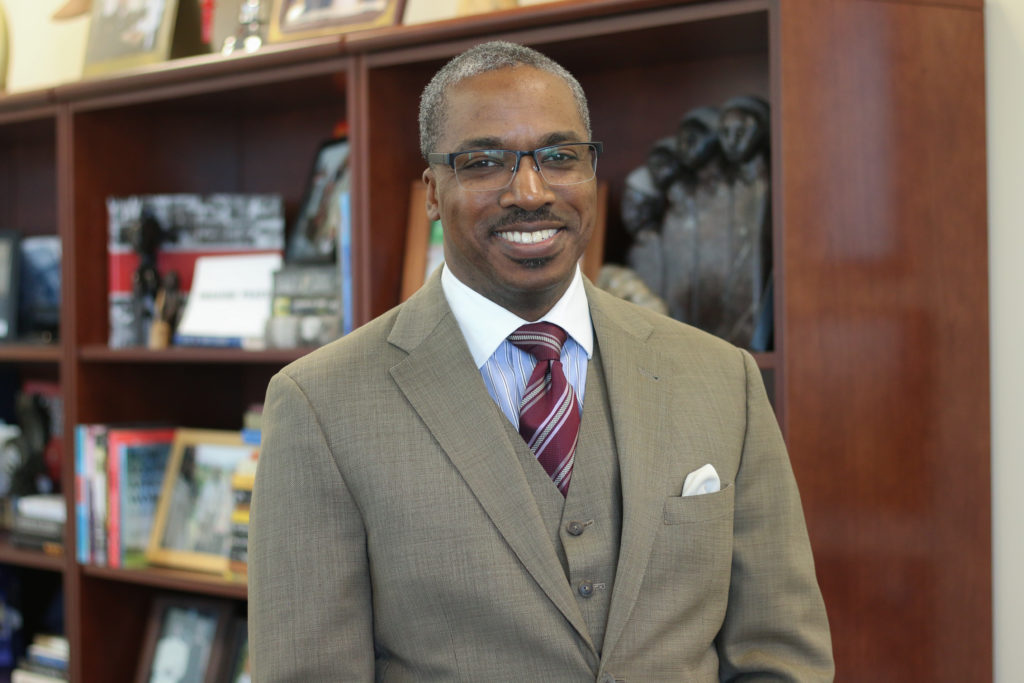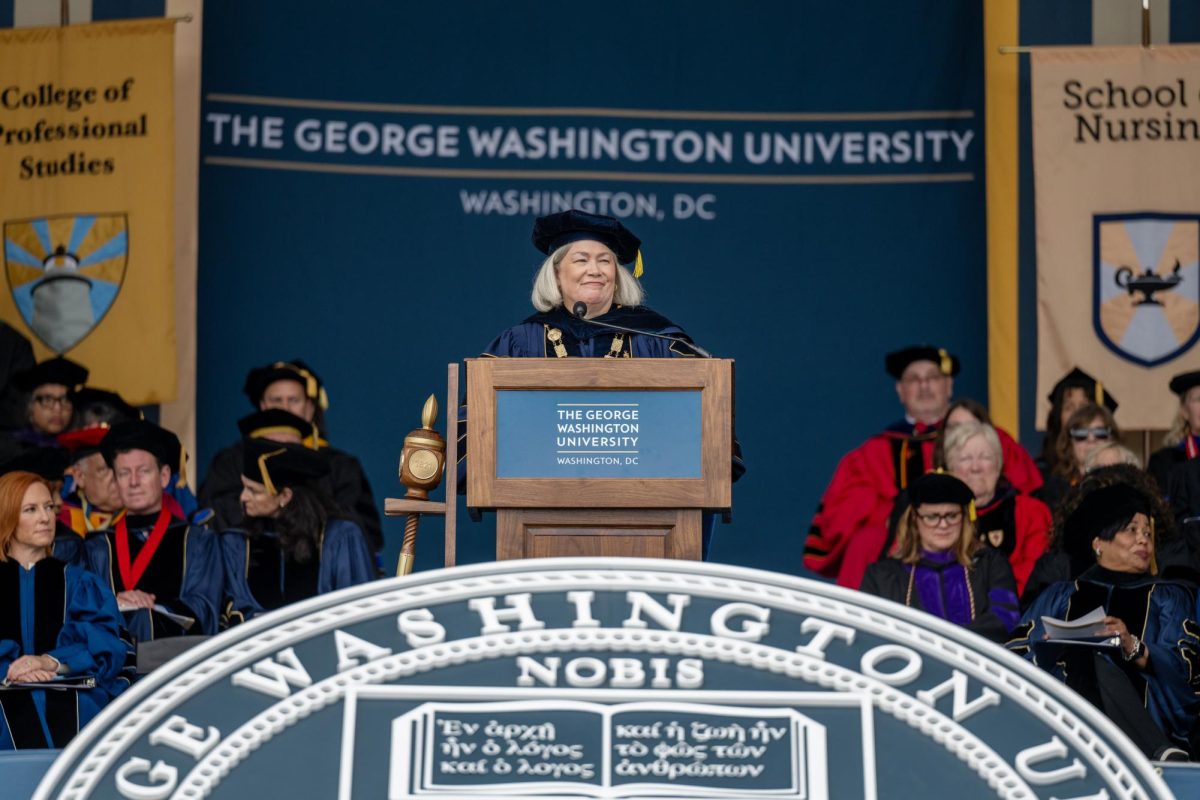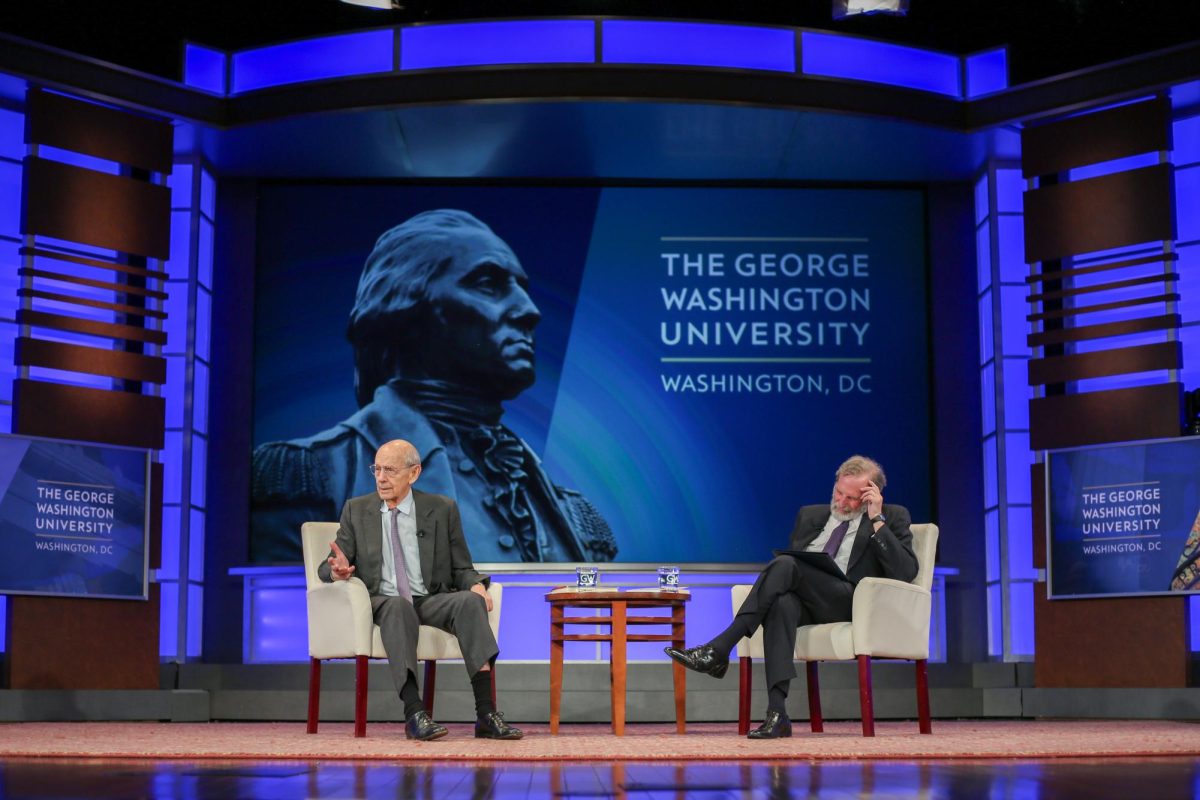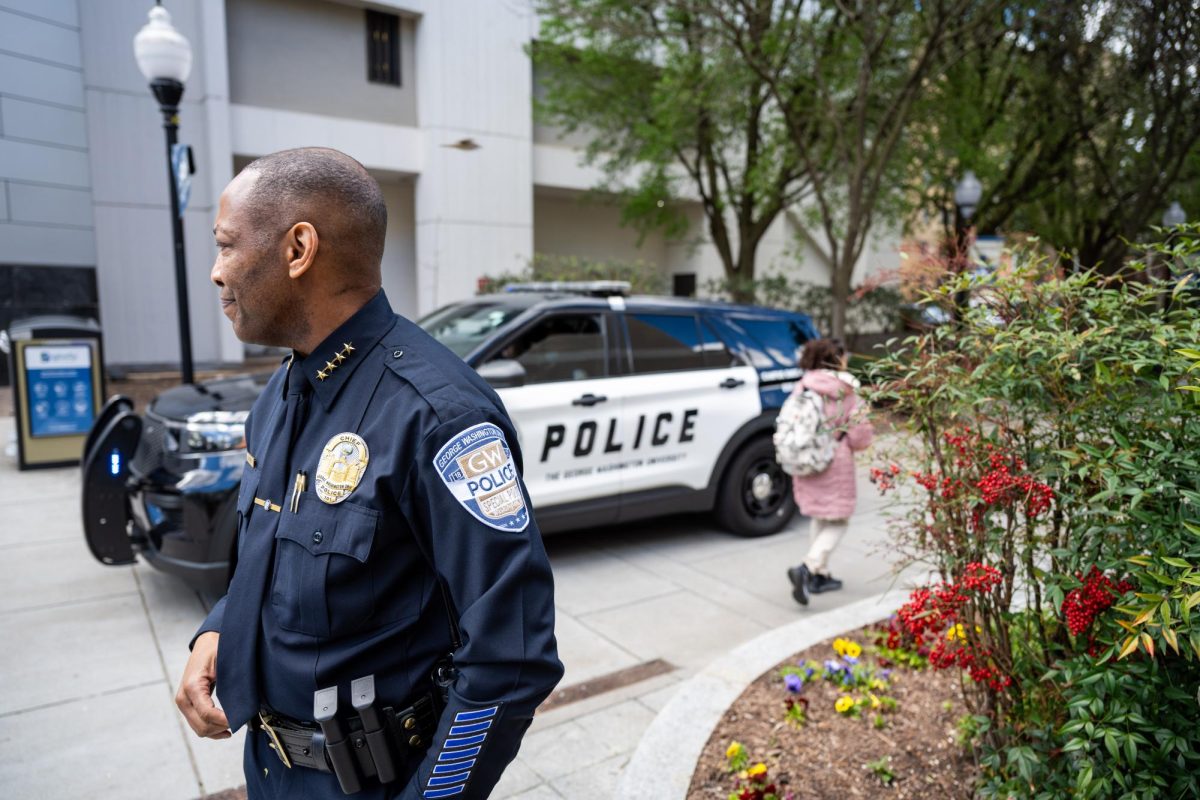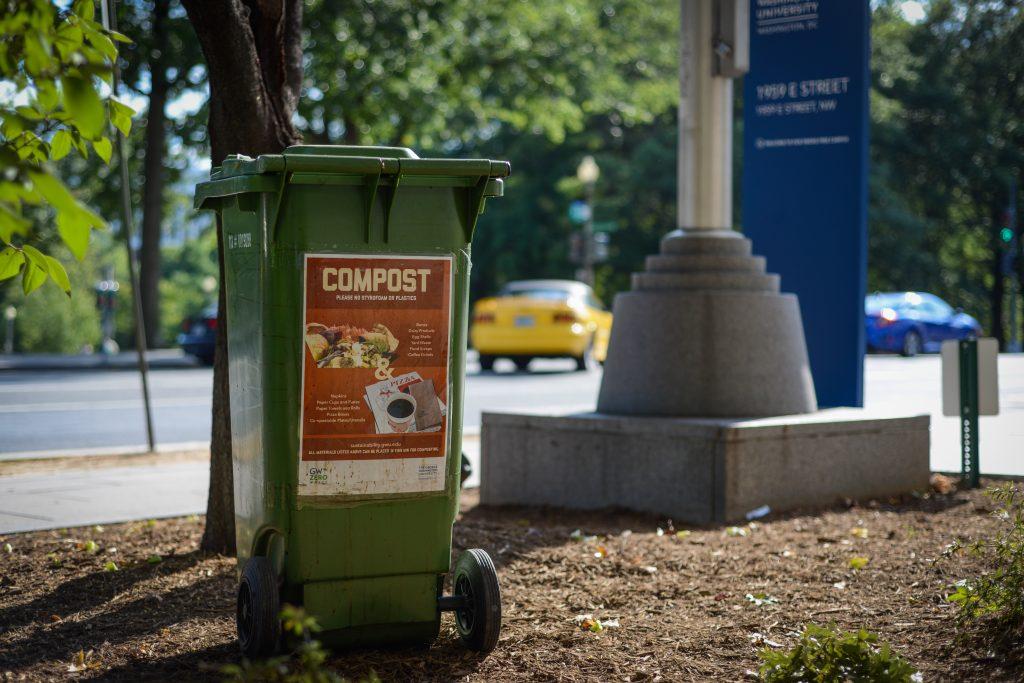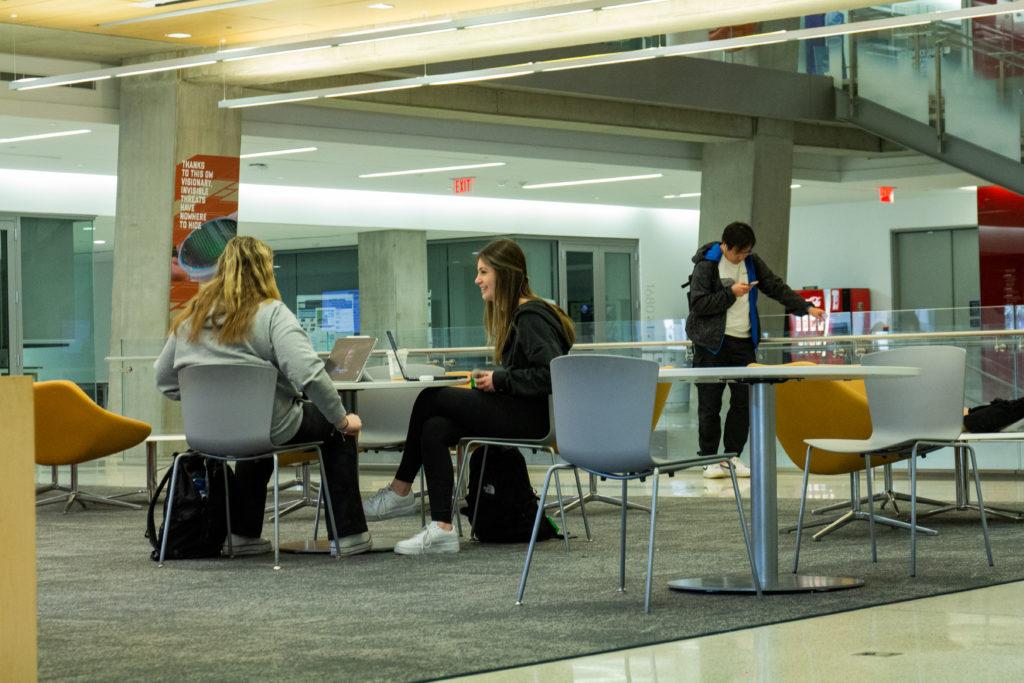The United States ambassador to South Africa discussed economic relations between the two countries and diplomacy at the Elliott School of International Affairs on Wednesday.
Ambassador Reuben Brigety II, the dean of the Elliott School from 2015 to 2020, said he works to support security, economic growth and democracy in South Africa while ensuring Americans and American businesses are safe and “prosperous” in the country. The conversation with Elliott School Dean Alyssa Ayres was hosted by the Institute of African Studies.
Ayres delivered opening remarks welcoming Brigety back to GW and reflecting on their time together as fellows at the Council on Foreign Relations and later at the Elliott School.
“With each of his steps in his career, I have admired Ambassador Brigety’s principled and moral leadership,” Ayres said. “We are lucky to have someone of his experience leading our crucial mission to South Africa.”
Brigety said an ambassador must find a balance between being the “voice and face” of the U.S. abroad — relaying information back to the U.S. government — with building relationships with the host government and citizens. Brigety said the U.S. must not isolate itself from the world and instead, engage further with other nations to address global challenges.
“It is in the U.S. national security interest, not only to protect and defend the United States but also to expand economic prosperity and to support democratic values around the world,” Brigety said.
Brigety identified the U.S. President’s Emergency Plan for AIDS Relief and the African Growth and Opportunity Act as major components of U.S.-South Africa relations, both of which are up for Congressional reauthorization in 2023 and 2025, respectively. He said PEPFAR is history’s greatest humanitarian intervention in health care because one in five South Africans are HIV-positive.
Brigety said the U.S. should engage with South Africa on their transition to cleaner energy because South Africa is one of the top 15 most carbon-emitting countries.
“If South Africa can transition from a coal power to green energy, and if they can do that in a way that prioritizes justice and aims to leave no one behind, the world’s greenhouse gas emissions will significantly decrease,” Brigety said.
Brigety said South Africa faces significant economic challenges resulting from their legacy of apartheid, like a 61 percent youth unemployment rate, almost half of the population on some form of government assistance and the highest rate of wealth inequality globally. He said major electricity outages also hinder economic progress, and programs like AGOA can help ease these issues by providing access to the American consumer market and subsequent opportunity for economic growth in South Africa.
“AGOA is not a trade program,” Brigety said. “AGOA is a development program that uses trade as a tool.”
Brigety said it is up to African nations to choose who they want as a partner in light of China’s increased trade and infrastructure development on the continent. He said the U.S. has been “very strong partner” of South Africa over the past 30 years and that the U.S. will continue to engage with other African countries.
“We will remain in conversation with them in ways that help to advance our interest and interface issues of concern,” Brigety said. “But ultimately, as I say, it is in our interest to help spread prosperity and democracy, and to do so I continue to make the better offer.”
Brigety said he founded the Elliott School’s Institute of African Studies during his time as dean because Africa was a “glaring omission” from the series of regional studies institutes the Elliott School already had. He said aspiring foreign policymakers should study Africa because the problems it faces mirror the world’s problems.
“In order to be an effective foreign policy practitioner, you have to have at least a reasonable understanding of what is happening on the continent of Africa,” Brigety said. “And the reason is that everything that’s happening in the world is happening in Africa, usually at some level of a higher amplitude and usually under more challenging circumstances.”


